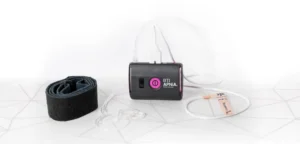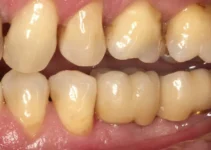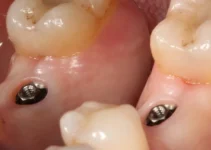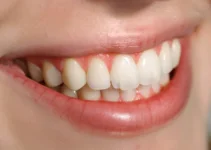Understanding the functionality and benefits of a CPAP machine in the UK is crucial for those suffering from sleep apnea. This article delves into the various aspects of CPAP machines, including types available in the UK market, how these devices help manage sleep apnea symptoms, and what users can expect in terms of health benefits. We will also touch on the considerations to make when choosing the right CPAP machine for your needs, ensuring you get the most effective treatment for a good night’s sleep.
Understanding CPAP Machines
Continuous Positive Airway Pressure, commonly known as CPAP, is a treatment method predominantly used for individuals suffering from sleep apnea. It involves the utilization of a CPAP machine which helps maintain a consistent air pressure in the airway passages, preventing them from collapsing during sleep. This is particularly important for patients diagnosed with obstructive sleep apnea (OSA), where the soft tissues in the throat intermittently collapse and block the airway. Through the application of a steady stream of air, CPAP machines ensure that the airway remains open, thereby improving oxygen levels and reducing the frequency of apnea events.
The effectiveness of CPAP therapy has been well-documented in numerous studies. For instance, a meta-analysis conducted by the American Journal of Respiratory and Critical Care Medicine highlighted that CPAP reduces daytime sleepiness, enhances cognitive function, and lowers the risk of cardiovascular events in patients with obstructive sleep apnea. Despite its benefits, adherence to CPAP therapy can be challenging due to factors such as discomfort, noise, or difficulty in adjusting to the sensation of pressurized air. Therefore, it is crucial for patients to have access to a variety of masks and machines to find a combination that best suits their needs.
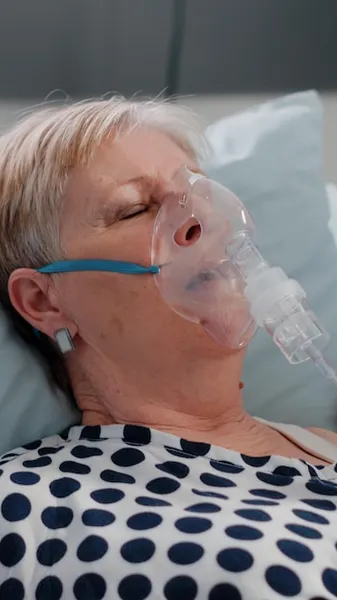
One of the primary advantages of CPAP machines is their ability to be customized to the individual needs of the patient. These devices come with a range of settings that allow for adjustments in air pressure, ensuring optimal comfort and efficacy. Additionally, modern CPAP machines are often equipped with features such as humidifiers and ramp settings. Humidifiers help to prevent dryness and irritation of the airway passages, while ramp settings gradually increase the air pressure to the prescribed level, making it easier for patients to fall asleep. Furthermore, advancements in technology have led to the development of quieter and more compact CPAP machines, enhancing user comfort and portability.
For those keen on exploring more about sleep apnea treatments and the latest innovations in dental and medical technology, we encourage you to read our other articles. Understanding the full spectrum of available treatments can empower you to make informed decisions about your health and well-being.
How to Choose the Right CPAP Machine in the UK
Continuous Positive Airway Pressure (CPAP) therapy is a common treatment for obstructive sleep apnoea (OSA) and snoring. Choosing the right CPAP machine can be a daunting task, especially when considering the numerous options available in the UK market. Selecting the correct device is crucial for ensuring both comfort and efficacy in managing your sleep disorder. This guide aims to help you understand the key factors that should be taken into account when choosing a CPAP machine.
Understanding the different models and features of CPAP machines is the first step in making an informed decision. Machines vary in terms of pressure settings, mask types, and additional functionalities like humidifiers and data tracking. Each of these features can significantly impact the quality of your treatment. Here, we delve into the essential aspects to consider to help you choose the best CPAP machine suited to your needs.
Factors to Consider
When selecting a CPAP machine, it’s important to consider the pressure settings. Some machines offer fixed pressure, known as CPAP (Continuous Positive Airway Pressure), while others provide variable pressure, referred to as APAP (Automatic Positive Airway Pressure). APAP machines automatically adjust the pressure throughout the night based on your breathing patterns, potentially offering more comfort and better sleep quality.
The type of mask is another critical factor. There are several types of CPAP masks, including nasal masks, nasal pillow masks, and full-face masks. Each type has its own advantages and disadvantages depending on your sleeping habits and facial structure. For instance, nasal masks are lightweight and perfect for those who move around a lot in their sleep, while full-face masks are ideal for mouth breathers.
A humidifier is a highly recommended feature, particularly if you live in a dry climate or experience dryness in your nose or throat while using the CPAP machine. Integrated or standalone humidifiers add moisture to the airflow, enhancing your overall comfort throughout the night.
Lastly, advanced features like data tracking and ramp settings can also influence your decision. Data tracking allows both you and your healthcare provider to monitor the effectiveness of the treatment, while ramp settings let the machine start at a lower pressure and gradually increase to the prescribed level, making it easier to fall asleep. Consider these convenience features to further tailor your CPAP experience to your personal needs.
By taking these factors into account, you can better navigate the complexities of choosing a CPAP machine that meets your specific requirements. For more insights into sleep apnoea treatment and other related topics, explore our additional articles.
Benefits of Using a CPAP Machine
Continuous Positive Airway Pressure (CPAP) machines have become a standard treatment for obstructive sleep apnea (OSA) and snoring. The benefits of using a CPAP machine are substantial, ranging from improved sleep quality to a significant reduction in various health risks associated with untreated sleep apnea. For those struggling with these conditions, CPAP machines offer a non-invasive and highly effective solution. Many individuals find the implementation of CPAP therapy life-changing. Users typically experience a dramatic increase in their overall quality of life, as the machine ensures a continuous flow of air to the respiratory system, preventing airway collapse during sleep. This mechanical support alleviates the disrupted breathing patterns that characterize OSA, ensuring a more restful and uninterrupted night’s sleep.
Improved Sleep Quality
One of the most immediate and noticeable benefits of CPAP therapy is improved sleep quality. Patients who use CPAP machines often report feeling more rested and refreshed upon waking. This is because the machine helps to maintain open airways throughout the night, significantly reducing or eliminating apnea episodes that disrupt sleep.
Enhanced sleep quality has a domino effect on various aspects of daily life. Better sleep can lead to improved concentration, mood, and overall cognitive functioning. Users frequently notice an increase in daytime alertness and a reduction in feelings of fatigue. The benefits are particularly evident in tasks requiring sustained attention, such as driving or operating machinery. In addition, more restful sleep can have a positive impact on one’s emotional well-being. With fewer sleep disruptions, individuals are less likely to experience the irritability and mood swings often associated with poor sleep. This can lead to healthier interpersonal relationships and an overall improvement in quality of life.
Reduced Health Risks
Besides enhancing sleep quality, CPAP machines play a crucial role in reducing various health risks associated with untreated sleep apnea. OSA has been linked to a plethora of serious health conditions, including cardiovascular diseases, hypertension, and type 2 diabetes. By ensuring consistent oxygenation during sleep, CPAP therapy helps mitigate these risks.
Studies have demonstrated that CPAP usage can significantly lower the likelihood of developing cardiovascular issues by maintaining regular heart rhythms and blood flow. This is particularly important given that untreated OSA can lead to increased blood pressure and strain on the heart, elevating the risk of heart attacks and strokes.
Moreover, effective CPAP therapy can improve metabolic profiles by reducing insulin resistance, a common issue in individuals with sleep apnea. Better-regulated blood sugar levels can substantially decrease the risk of developing type 2 diabetes, ensuring long-term health benefits for users.
Lastly, CPAP machines also contribute to a reduction in the risk of motor vehicle and workplace accidents. By enhancing sleep quality and reducing daytime fatigue, users are less likely to experience the lapses in attention and microsleeps that can lead to accidents. This not only benefits the individual but also enhances public safety.
The multifaceted benefits of CPAP machines underscore their importance in managing OSA and snoring. For further insights on treating sleep apnea and related conditions, consider exploring our other informative articles.
Understanding CPAP Alternatives for Sleep Apnea
While CPAP machines are a popular treatment for sleep apnea, exploring alternative solutions like the BTI APNiA® System can offer additional options for those seeking relief from snoring and sleep disruptions.
How does the BTI APNiA® System compare to a CPAP machine?
The BTI APNiA® System differentiates from traditional CPAP machines primarily in its diagnostic and treatment approach. Unlike CPAP, which uses continuous positive airway pressure to keep airways open, the BTI APNiA® System focuses on identifying the specific anatomical and functional issues contributing to sleep apnea and snoring, allowing for personalized treatment strategies that may not require the use of a machine during sleep.

My name is Salman Kapa, a 73-year-old expert in bone regeneration and dental implantology. With decades of experience in the field, I am dedicated to advancing our understanding of oral health and hygiene. Through my research and writing, I aim to contribute to the development of innovative solutions in dental care.

